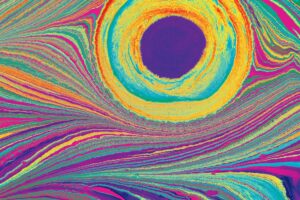In the realm of mental health treatments, a groundbreaking shift is emerging that is dubbed as the “Psychedelic Renaissance”. Once constrained due to socio-cultural stigma and restrictive regulations, the field of psychedelic studies is witnessing a rebirth with a renewed interest and systematic scientific inquiry. Advanced research techniques are now instrumental to unlock and understand the therapeutic benefits of psychedelics in treating various psychiatric disorders.
The journey of mind-altering substances in medical science is riddled with controversy and contention. However, the last few decades have seen a revival in research on psychedelics, supported by a growing acceptance of their use in therapeutic contexts. Psychedelics are now entering the mainstream conversation not as harmful, addictive substances, but as potential treatment options that could revolutionize mental health therapy.
Historically, psychedelics have been used in many indigenous cultures for religious and healing purposes. However, the 1960s saw a surge of unregulated use and abuse of these substances leading to their demonization and banning. After a decades-long hiatus, experimental trials are now being conducted with psychedelics such as Psilocybin (found in magic mushrooms), LSD, and Ketamine.
A significant distinction in the psychedelic renaissance is the rigorous scientific approach. The use of double-blind, placebo-controlled experimental trials has marked a departure from the anecdotal evidence of the past. Several research institutions and universities, such as Johns Hopkins University, have established dedicated centers for psychedelic and consciousness research.
Advanced neuroscientific techniques like functional Magnetic Resonance Imaging (fMRI) and Positron Emission Tomography (PET) scanning, have enabled researchers to visualize the brain’s actions under the influence of psychedelics. These cutting-edge tools have revealed the potential of psychedelics to ‘reset’ or ‘defragment’ brain networks, providing insights on how they can be harnessed for mental health treatments.
A broad spectrum of psychiatric disorders, from depression and anxiety to Post Traumatic Stress Disorder (PTSD) and Obsessive-Compulsive Disorder (OCD), are being evaluated for psychedelic intervention. Research has demonstrated the potential effectiveness of psychedelics in treatment-resistant depression, offering hope to those who have not responded to conventional treatment options.
Meanwhile, the studies on the use of Psychedelics in treating PTSD show promising results. In conjunction with cognitive therapy, controlled and supervised psychedelic administration has shown to help individuals process traumatic memories more effectively, reducing the symptoms of PTSD.
Additionally, micro-dosing — taking tiny, sub-perceptual amounts of psychedelic substances — is being explored for its therapeutic benefits without the intense ‘trip’ usually associated with these substances. This approach recognizes that a full dose might not be suitable for everyone and allows a wider range of individuals to benefit from the therapeutic potential of these substances.
Despite encouraging findings, challenges persist. Legal restrictions, social stigma, and the inherent risks associated with mind-altering substances continue to obstruct the progress of psychedelic studies. Ensuring safety and ethical considerations is crucial when dealing with substances that can profoundly alter consciousness.
Nonetheless, the resurgence of psychedelic research signifies a shift in societal and medical understanding of these traditionally maligned substances. It testifies to the enduring nature of scientific inquiry and the continual evolution of our understanding of mental health treatment and human consciousness.
Navigating the future requires an open dialogue and collaborative effort between researchers, practitioners, policymakers, and society. As we delve further into the psychedelic renaissance, we may stand on the brink of a new era in mental health science, offering renewed hope for those battling mental health disorders.
These developments underscore the importance of integrating new research findings into medical practice to provide varied and effective treatment strategies. As we move forward, embracing the lessons of the past while pioneering new paths, we can look forward to a future where mental wellbeing is not a distant dream but a tangible reality.
It is only through rigorous scientific inquiry and a deep understanding of both the benefits and the risks that the full potential of the psychedelic renaissance can manifest. Our journey with these powerful, mind-altering substances is just beginning, and the path ahead promises exciting new discoveries and possibilities for human health and wellbeing.








